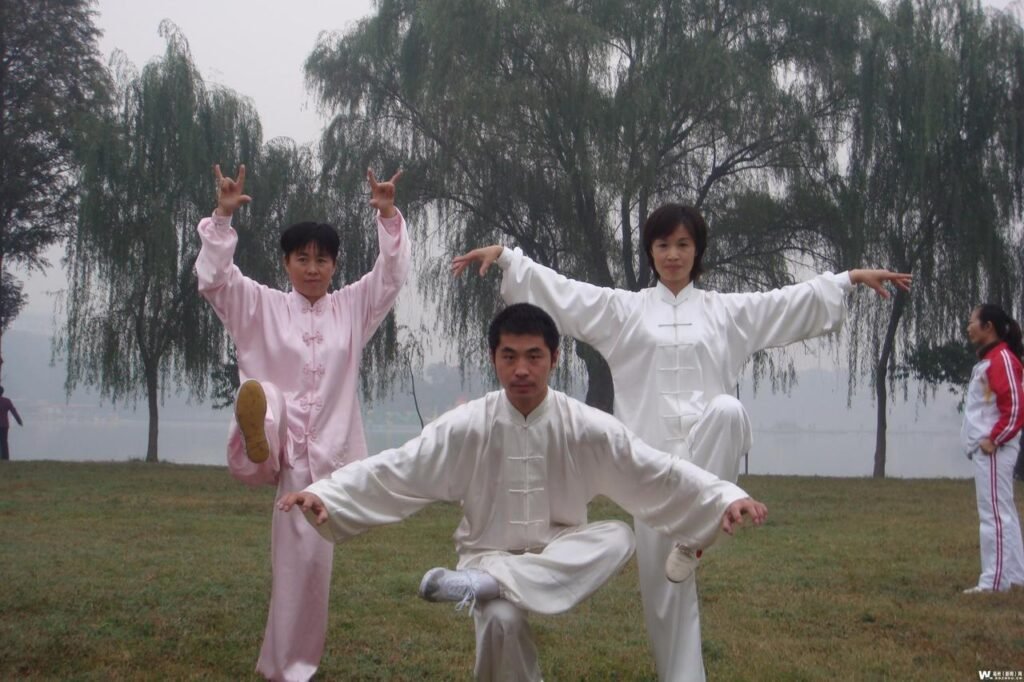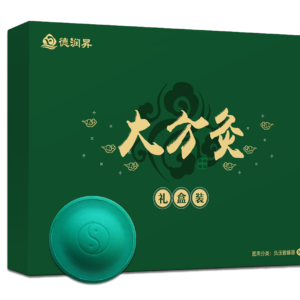中医秋季养生的小常识
The Yellow Emperor’s Internal Classic 《黄帝内经》 states, “In the three months of autumn, the weather is mild and the sky is clear. Go to bed early and get up early, rising with the rooster. Keep your mind calm and peaceful, relax your body, and collect your spirit to balance the autumn energy. Keep your mind calm and don’t let it be affected by external factors, so as to keep your lung energy clear. This is the way to nourish and collect the autumn energy. Going against this principle will harm your lungs, leading to diarrhea in winter and insufficient energy storage.”
In autumn, the weather starts to get cooler and drier. The characteristics of autumn are that it goes from hot to cold, with yang energy declining and yin energy increasing. Therefore, autumn health and wellness practice should follow the principle of “nourishing and collecting”. Dietary and routine care should focus on moistening dryness and nourishing qi, with emphasis on invigorating the spleen, nourishing the liver, and clearing the lungs. Clearing and moistening with sweet and sour flavors, as well as adjusting for coldness, should be the main approach.
Following are some useful tips for autumn wellness practice and several aspects we need pay attention to.

1. Adjusting Daily Routine in Autumn
The seasonal adjustment should start from early morning. In autumn, the weather is dry, but early morning is often the most comfortable time of the day with clear skies and fresh air. Going to bed early and getting up early is a good habit, which helps to collect your spirit and prevent damage to the lungs from autumn dryness, keeping you energetic. In addition, according to research on ischemic diseases such as cerebral thrombosis, such diseases have a higher incidence in autumn, with most cases occurring in the later stages of long sleep. Proper early rising in autumn can reduce the chance of thrombosis formation, which is also significant for preventing cerebral thrombosis.
Early rising and early sleeping: People may feel tired in autumn and tend to sleep in on weekends. However, experts suggest that people should develop the habit of going to bed early and getting up early in autumn. Traditional Chinese medicine believes that following the natural rhythms is one of the most effective ways of health preservation (yang-sheng). This means that people should adjust their daily routine according to the changes of the four seasons.
Preventing colds: In autumn, there is a large temperature difference between day and night. People should add or remove clothes at any time to prevent catching a cold. To improve the body’s ability to resist cold weather in winter, people who are susceptible to bronchitis due to weak respiratory system should exercise more in autumn to ensure that the body can adapt to climate change and improve its resistance to cold weather.

2. Adjusting Emotions
The desolation of nature in autumn tends to evoke emotions, especially in the elderly, who may feel melancholic, desolate, and in the twilight of their lives. Emotional regulation should maintain peace and calmness, which can relieve the psychological impact of autumn’s killing atmosphere.
Spiritual adjustment should follow the characteristics of autumn, keeping calm and collected, clear and pure, and inwardly focused. It is important to cultivate a quiet mind, eliminate distractions, and achieve a peaceful state of mind. After the autumnal equinox, the Double Ninth Festival arrives, which is a good time to go out and enjoy the scenery. The cool and refreshing weather is not suitable for staying indoors. Appreciating nature and the scenery can refresh the mind and dispel melancholy.

More sun-bathing: After being exposed to sufficient sunlight, the body can inhibit the secretion of melanin. However, when autumn comes, sunlight is not as strong as in summer, and rainy days become more frequent. At this time, the body produces more melanin, which affects the secretion of thyroid hormones and adrenaline, making people feel depressed. Therefore, appropriate sunbathing can make people feel more energetic and open-minded. If it is cloudy or rainy, turning on the indoor lighting can also increase people’s excitement.
3. Adjusting Diet – Moisturizing Dry, Nourishing Yin, Increasing Acidity, and Avoiding Raw-n-Cold
As the weather gradually cools down, many people start to think about “putting on autumn fat.” In fact, after the hot summer, the digestive function of the body will weaken. Sudden overeating will increase the burden on the spleen and stomach. Therefore, it is recommended to start with nutritious and easily digestible food and moderately “put on autumn fat.”
Moisturizing: Moisturizing the dry is the top priority for autumn diet. Where does the “dryness” in autumn come from? According to the Five Elements theory, autumn corresponds to metal, and in the human body, it corresponds to the lungs. At this season the Yang qi in nature declines, and the Yin qi increases day by day. The rainfall decreases, so the seasonal qi is “dryness.” The evil of dryness and heat can easily damage the lung qi, leading to the dissipation of the body’s yin fluid and body fluids, causing various dry symptoms such as dry and cracked skin, dry mouth and nose, dry throat, thirst, dry tongue with little saliva, and constipation.

Because everyone’s physical condition is different, dryness relief requires individualized treatment. Generally speaking:
- The diet should be light, with fresh fruits and vegetables, and plenty of water.
- Avoid spicy, fried, and greasy foods. Onions, ginger, garlic, and strong alcoholic beverages should also be avoided as much as possible.
- Choose moisturizing foods such as lily bulbs, white fungus, sesame seeds, walnuts, sugarcane, and milk.
Nourishing Yin: In spring and summer, people should nourish Yang. In autumn and winter, people should nourish Yin. People with Yin deficiency are suitable for eating more Yin-nourishing foods in autumn. For example, white fungus: It is rich in natural colloids and has the functions of beauty care, promoting gastrointestinal peristalsis, and reducing fat absorption. However, people with chronic diarrhea are not recommended to eat it. Other Yin-nourishing foods include honey, lotus seeds, Chinese yam, red dates, as well as spinach, daylily buds, figs, snow pears, radishes, etc., which can be eaten regularly to prevent autumn dryness from damaging Yin.
Increasing acidity: After the beginning of autumn (立秋), you can choose some sour foods in moderation to constrict lung qi and nourish the liver (the liver’s five flavors are sour, which can enhance liver function). You can eat more sour fruits such as grapes, kiwis, hawthorns, lemons, apples, pomegranates, grapes, grapefruits, etc., which can nourish yin and moisten the lungs and relieve thirst. Please note that people with high blood sugar should eat less or avoid eating grapes.

Eating warm food: In early autumn, it is still humid and hot. As a result, the spleen and stomach are weak. Autumn weather turns cooler, and people’s resistance decreases. As the saying goes, “autumn melon harms the stomach.” Melons and fruits that are cold in nature should be eaten less or avoided as much as possible to avoid harming the body. To protect the spleen and stomach, eat more warm food and limit cold food and drinks. You can cook porridge with japonica rice or glutinous rice. Both have the functions of invigorating the spleen and stomach and replenishing Qi.
Moderate Water Intake: In the “Food Pyramid,” water is at the bottom. That is to say, water is the most basic and important nutrient for the human body. The autumn weather is dry, which can easily cause dryness in the body. Autumn dryness attacks the lungs the most, so when dryness rises, diseases such as coughing, asthma, diarrhea, and dry skin are the first to occur. At this time, the body needs more water to maintain normal body function. In addition, fatigue easily occurs in autumn, which is commonly known as “autumn fatigue.” Scientifically drinking water can also alleviate the symptoms of autumn fatigue.
In autumn, you should drink more boiled water and light tea to nourish yin and moisten dryness, make up for the loss of body fluids, and especially drink boiled water regularly and actively, even if you are not thirsty. When drinking water, drink small amounts frequently instead of drinking too much at once. Studies have found that this method can not only compensate for body fluids but also does not harm internal organs. Drinking a large amount of water at one time will damage gastrointestinal function and cause digestive and absorption disorders.

More Honey, Less Ginger: Drinking light saltwater during the day and honey water at night is not only a good way to replenish body fluids but also a dietary regimen for autumn health and anti-aging. It can also prevent constipation caused by autumn dryness. Honey has the effects of strengthening the body, improving intelligence, increasing hemoglobin, and improving myocardium. Taking honey regularly in autumn is not only beneficial for the recovery of these diseases but also can prevent the harm of “autumn dryness” to the human body and play a role in moistening and nourishing the lungs.
Ginger is a good staff, but it is better to eat less ginger in autumn. There is an old saying that “within a year, don’t eat ginger in autumn; within a day, don’t eat ginger at night.” The meaning is probably that don’t eat ginger in autumn and don’t eat ginger at night. Of course, this does not mean that you absolutely cannot eat ginger in autumn, but the key is not to “eat more” and “not eat at night.”
4. Increase Exercise
After entering in autumn, you can appropriately increase exercise to enhance lung capacity and overall physical fitness. In autumn, the weather is cool and dry, so you should breathe more fresh air and take walks or runs in the cool morning breeze. This not only provides an “air bath” but also trains the body to adapt to cold stimuli, preparing for the upcoming winter.
In autumn, people can participate in some light and gentle exercises with low activity levels. This will not only avoid the loss of energy due to sweating but also stretch the muscles and improve physical fitness. Exercise can also enhance physical fitness, improve cold resistance and disease resistance, improve cardiovascular function, increase the flexibility of the cerebral cortex, and maintain a clear mind and vigorous energy. After exercise, gastric juice secretion increases, intestinal peristalsis accelerates, and digestive and absorption functions are improved. Slow jogging, aerobics, Tai Chi, walking, hiking, table tennis, badminton, and other sports are suitable for autumn. You can choose according to your own preferences.
In autumn, due to the lower temperature, muscles and ligaments will reflexively cause vasoconstriction and increased viscosity, joint mobility will decrease, ligament extension will decrease, and the nervous system’s command ability to muscles will decrease without preparation. If you don’t adequately prepare for exercise before exercise, it can cause joint ligament strains, muscle strains, etc., seriously affecting daily life. Exercise becomes a kind of injury. Therefore, regardless of age, warm-up exercises must be done before exercise. The duration and content can vary from person to person, but generally the body should be slightly feverish after warm-up exercises. After warm-up exercises, whether doing soothing or more intense activities, the body can adapt and achieve the purpose of exercise.

To nourish the lungs in autumn, respiratory training needs to be increased. Respiratory function training should be done outdoors as much as possible, regularly and regularly to improve lung function. In addition, targeted respiratory muscle training can enhance respiratory muscle strength and endurance, improve lung function, increase respiratory amplitude, and help improve lung ventilation and blood oxygen saturation. Respiratory muscle training includes abdominal breathing, lip compression breathing, and systemic respiratory gymnastics.
5. Disease Prevention and Health Preservation:
Preventing autumn dryness – In autumn, there is less rain and the weather is dry, making it easy for the body to develop “autumn dryness”. Traditional Chinese medicine believes that dryness can damage the lungs. As the autumn air is connected to the lungs, excessive lung qi can lead to insufficient body fluids, causing “dryness syndrome” such as dry skin and coughing. To prevent autumn dryness, it is important to adjust your diet and eat foods that can moisten the lungs, clear dryness, nourish yin, and generate body fluids, such as pears, sugarcane, water chestnuts, lilies, and tremella.
Preventing autumn fatigue – As the saying goes, “spring sleepiness and autumn fatigue”. Autumn fatigue is a protective response to compensate for the excessive consumption of the body during summer. It often manifests as tiredness, weakness, and lack of energy. The best way to prevent autumn fatigue is to engage in appropriate physical exercise, but it is important to gradually increase intensity. Adequate sleep can also prevent autumn fatigue.
Preventing colds – In autumn, a large amount of cold air arrives, and some people with weaker constitutions may be invaded by the cold air, causing symptoms such as colds and fever. Autumn is a peak season for illness, so we must pay attention to keeping warm in our daily lives, especially for the elderly and children. After feeling a little chilly, we should add more clothing to prevent colds.

Nourishing the lungs and eliminating dryness – Autumn belongs to the metal element, which is the best season for nourishing the lungs. The book “Su Wen” says, “The lung is in charge of autumn…the lung is contracted, eat sour foods to contract it, use sour foods to nourish it, and use pungent foods to disperse it.” Traditional Chinese medicine believes that each of the five organs corresponds to a season and has its own seasonal function. Lung qi corresponds to autumn. Sour foods can contract lung qi, while pungent foods can disperse it. Therefore, in autumn, we should focus on contracting rather than dispersing. We should eat more sour fruits and vegetables such as apples, star fruit, lemon, and hawthorn, and eat less spicy and pungent foods such as chili peppers, onions, ginger, and garlic.
Grounding yourself more – In autumn, we should spend more time in nature by wearing grounding shoes and strolling through fields and parks. This can help nourish yin and moisten the lungs.
Avoid sweating excessively – Excessive sweating can damage the body’s “yin”. Therefore, moderate exercise is recommended in autumn.

Lung-nourishing Qigong – The health qigong lung-nourishing exercise is based on the theories of traditional Chinese medicine and selects and integrates specific qigong exercises for the lungs from traditional Chinese exercises such as the Six-healing sounds, Five-animal frolics, Eight-section brocade, and Yi-jin-jing. This was adapted during the pandemic of Covid-19 with good outcomes. For people with chronic respiratory system diseases, this set of exercises can improve lung function and quality of life.
The main movements of the health qigong lung-nourishing exercise include eight postures: starting posture, Fu sound for stomach formula, Si sound for Lung formula, holding up the sky regulating three burners, drawing a bow to shoot on the left and right, bird exercise (bird flying and bird stretching), carrying a horizontal bar and lowering the magic pestle, and ending posture. – we will teach the Lung-nourishing qigong and other wellness practice during our Sunday Qigong for Health class in October, You are welcome to join us at any Sunday, start at 9am EST online at Zoom platform. Here is the registration link:



